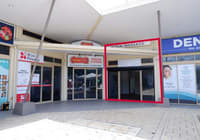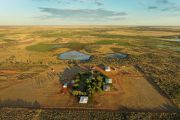
AirTrunk’s Robin Khuda reveals his luxury apartment side-hustle
Developing luxury beachfront apartments and penthouses for wealthy downsizers has become a lucrative side project for AirTrunk founder Robin Khuda.
While talking up the prospects of the data centre giant he founded in 2016 and sold last week to investment giant Blackstone in a $24 billion deal, Mr Khuda said he was also making “very good returns” from high-end residential development.

“There is a lot of wealthy people in Australia. And if you look at it proportionally, the high-end property world in Australia is very small compared to New York and London,” he told The Australian Financial Review Property Summit on Tuesday.
“My sweet spot on the investment side is targeting that very high-end property investment. And look, I have done very well. I have completed my first high-end project in Manly that generated very, very good returns. I’m pretty happy with it.”
While Mr Khuda has spoken about his hopes of turning AirTrunk into a $100 billion business with data centres across Asia – it already operates in Australia, Hong Kong, Japan and Malaysia offering processing and storage to the world’s biggest technology firms – he has been more reluctant to discuss the two development vehicles he owns with his wife.
There’s Ondas, a developer of “prestige and exclusive luxury residences”, and FSST, which is working on a Melbourne project after snapping up a retail row for $35 million.
Ondas, which is working on luxury projects in Palm Beach in Sydney’s north, is also developing six luxury apartments in Manly. Five of those have settled, including an $8.75 million sub-penthouse. A full-floor penthouse is on the market for more than $18 million.

Mr Khuda paid just over $11 million for the 445 square metre site. He said he approached his private residential development projects in the same way he approached the establishment of AirTrunk.
“You basically have an idea. You find the site, you go through the planning, you realise [the project] and you realise your [capital] gain later on. It’s the same concept.”
Mr Khuda said real estate – he and his wife Melea Walker-Khuda also own trophy homes and penthouses – was something “stable” and tangible compared with establishing AirTrunk, the “high-risk” investment.
His success targeting wealthy downsizers mirrors the focus of major developers like ASX-listed Lendlease and privately owned Consolidated Properties, who say these are the only apartment projects that stack up given high land and construction costs.
“The only thing that will work is expensive units for downsizers and Baby Boomers,” Consolidated Properties chief executive Don O’Rorke said on Monday.

One of Australia’s most successful migrants – who came to Australia as an 18-year-old university student from Bangladesh – Mr Khuda also spoke about Labor’s proposed caps on foreign students.
The government wants to cut the number of international students, a move which has outraged universities. But Labor says it is only returning the annual enrolment number to the level before the COVID-19 pandemic.
Mr Khuda said Australia should be opening up migration to people from different countries. “We need more people. I think that’s the bottom line if you want to do these big infrastructure projects … I’m a big believer in bringing more skilled labour into the country and bringing more students into the country,” he said.
Speaking about his mega-deal with Blackstone, Mr Khuda said he may have gotten “too excited” when he declared plans to create a $100 billion data centre business.
But the opportunities to expand the business were being driven by the exponential growth of cloud computing and artificial intelligence, he added.
“If you look at our top five customers – Amazon, Microsoft, Google, Oracle and Apple – their capital expenditure program over the next few years is US$1 trillion ($1.5 trillion),” Mr Khuda said.
“So there is a significant investment going into this sector, and the data centres would be the beneficiary because they are the engine rooms and the toll roads that enable all the innovation, all the AI, all the machine learning, and all those technologies.”











